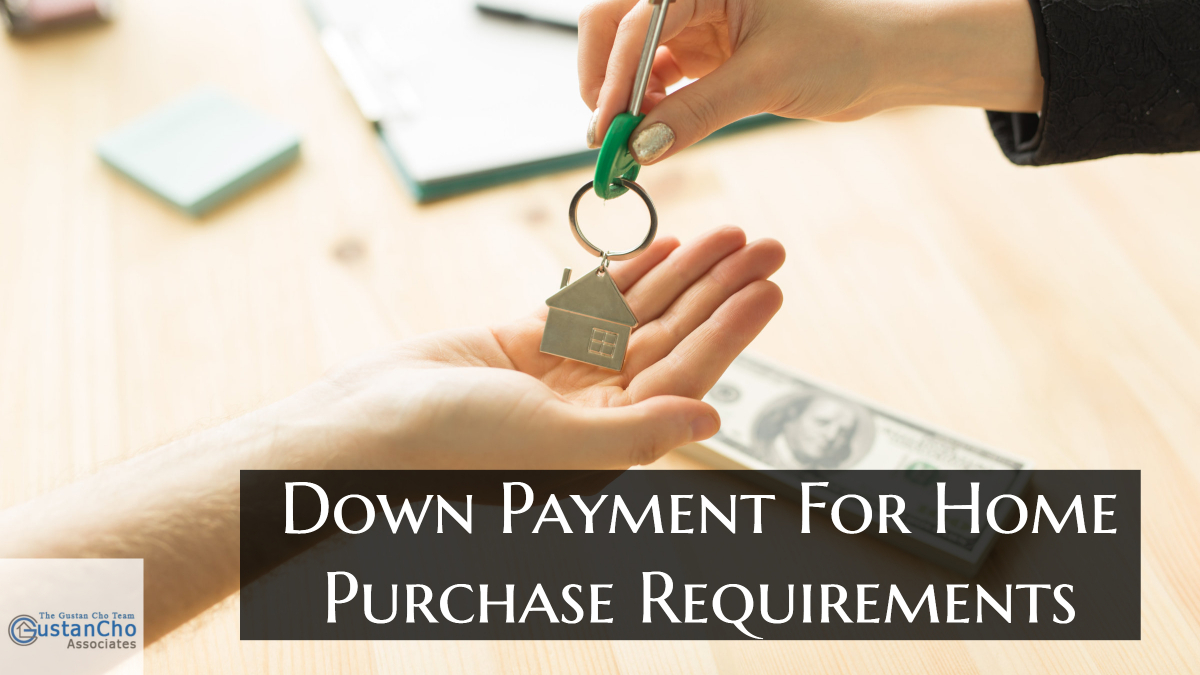-
Discussions tagged with 'Down Payment and Closing Costs'
-
-
There are always two types of costs when you buy a house. There is the down payment and the closing costs. The down payment is a fixed dollar amount. The minimum down payment on FHA loans is 3.5%. The minimum down payment on conventional loans is 3% for a first-time homebuyer and 5% for a seasoned homebuyer. USDA and VA loans do not require a down payment. Closing costs are fees and costs a homebuyer gets charged. Closing costs is not just the cost of the origination from the lender. Any costs and fees associated with the purchase of a home are classified as closing costs. Closing costs includes pre-paids which are escrows.
Closing Costs and Down Payment on a Home PurchaseClosing Costs
Closing costs vary and is not a fixed rate. Closing costs depends on the city, county, state, and the type of property. Closing costs are the fees and expenses incurred during the finalization of a real estate transaction, typically paid at the closing of the deal when the title of the property is transferred from the seller to the buyer. These costs can vary widely but generally range from 2% to 5% of the home’s purchase price. Here are some common components of closing costs:
- Loan Origination Fees: Fees charged by the lender for processing the mortgage loan application.
- Appraisal Fee: The cost of having the property appraised to determine its market value.
- Home Inspection Fee: The cost of a professional home inspection to check for structural issues or necessary repairs.
- Title Insurance: Protects the buyer and lender from any legal disputes over the property’s ownership.
- Attorney Fees: Legal fees for the services of an attorney to handle the closing process (required in some states).
- Recording Fees: Fees charged by the local government to record the sale and transfer of the property.
- Survey Fee: The cost of verifying the property’s boundaries and any potential encroachments.
- Prepaid Costs: These can include property taxes, homeowners insurance, and mortgage interest paid upfront.
- Private Mortgage Insurance (PMI): If your down payment is less than 20%, you may be required to pay PMI.
Down Payment on a Home Purchase.
A down payment is the amount of money a buyer pays upfront when purchasing a home, typically expressed as a percentage of the home’s purchase price. The size of the down payment can affect the mortgage terms, including the loan amount, interest rate, and monthly payments. Here are some typical down payment options:
- Conventional Loans: These typically require a down payment of at least 3% to 20% of the home’s purchase price. A higher down payment can result in better loan terms and potentially avoiding PMI if the down payment is 20% or more.
- FHA Loans: Insured by the Federal Housing Administration, these loans are popular with first-time homebuyers and require a minimum down payment of 3.5%.
- VA Loans: Available to eligible veterans and active-duty military personnel, VA loans often require no down payment.
- USDA Loans: Designed for rural homebuyers, USDA loans can also require no down payment.
Example Scenario
For a home priced at $300,000:
- Down Payment (20%): $60,000
- Closing Costs (estimated at 3%): $9,000
Total amount needed upfront: $69,000
Tips for Managing Costs
- Shop Around for Lenders: Different lenders offer various loan terms and closing cost structures.
- Negotiate with the Seller: Sometimes sellers are willing to cover part of the closing costs to facilitate the sale.
- Ask About Closing Cost Assistance Programs: Some states and localities offer programs to help with closing costs for first-time buyers.
Understanding closing costs and down payments is crucial in budgeting for a home purchase and ensuring you are financially prepared for this significant investment.
https://www.gcamortgage.com/down-payment-for-home-purchase/
gcamortgage.com
Down Payment For Home Purchase Guidelines By Lenders
In this guide, we will cover down payment for home purchase requirements by mortgage lenders. Homebuyers planning to purchase a home have two types of costs
Viewing 1 - 2 of 2 discussions

